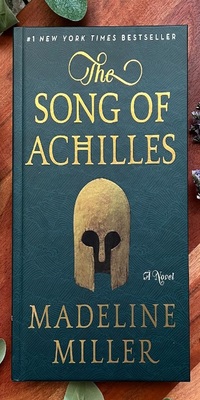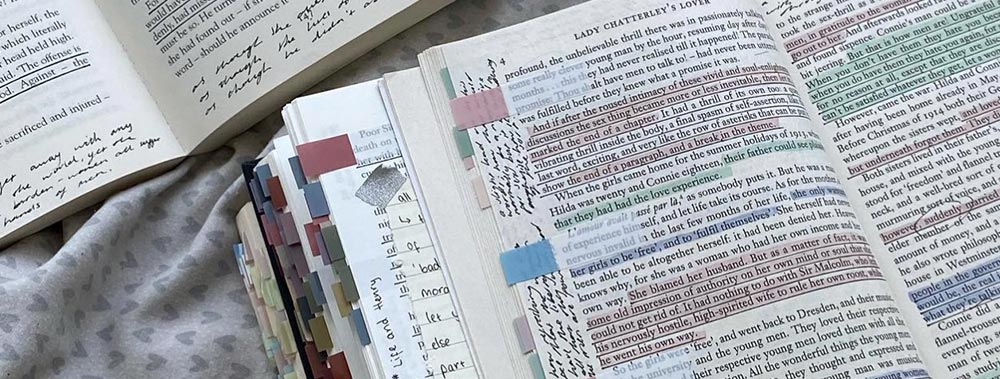The Song of Achilles: Summary, Plot, Characters, Literary Analysis & More
“The Song of Achilles” is a captivating novel by author Madeline Miller, first published in 2011.
This novel stands as one of Miller’s greatest critical and popular successes, captivating readers with its imaginative yet informed vision of ancient Greek mythology and history.
Miller’s prose weaves a spellbinding tale that breathes life into one of the world’s oldest stories, reimagining the heroic tale of Achilles and Patroclus with fresh insight and breathtaking depth.
The novel follows the passionate companionship between Achilles and Patroclus, delving into the intimate friendship that blossoms between these two larger-than-life mortals against the backdrop of the Trojan War.
Set in the mythical world of gods and heroes, “The Song of Achilles” brings light to the divinely human qualities of these figures, offering an enthralling and profoundly human perspective on their legendary deeds.
Madeline Miller’s portrayal of Achilles is both heroic and tender, showcasing his superhuman prowess on the battlefield while also exploring his vulnerabilities and the complexities of his nature.
As the story unfolds, Achilles’s pride, adolescent friendship, and devastating love story take center stage, revealing layers of his character previously unexplored.
Miller’s skillful use of Greek mythology and ancient stories infuses the narrative with a breathless sense of authenticity, transporting readers to the heart of ancient Greece and the Western world’s collective imagination.
The novel’s exploration of Achilles’s relationship with Patroclus, an awkward young prince, offers a fresh take on the classic story. As their bond deepens, the narrative weaves a devastating love story that resonates with themes of love, loyalty, and sacrifice.
Read on to find a complete “The Song of Achilles” summary as we delve into the literary elements of the work.

"The Song of Achilles" brings light to the divinely human qualities of these figures, offering an enthralling and profoundly human perspective on their legendary deeds.
Table of Contents
Summary The Plot Characters Key Themes Genres Language used Literary devices Summing upThe Plot
Madeline Miller’s “The Song of Achilles” unfolds in mesmerizing prose that brings Greek mythology to life. This reimagined Achilles story, reminiscent of Mary Renault’s epic novels, follows the life of the young hero Patroclus, who forms an unbreakable bond with Achilles.
Set against the backdrop of the Trojan War, Miller’s brilliant narrative traces their friendship’s evolution, from its tentative beginnings to a passionate and intimate connection.
Unlike Brad Pitt’s Troy, which focuses on external battles, “The Song of Achilles” delves into the emotional landscapes of its characters.
Achilles, both a warrior and a demigod, is portrayed through Patroclus’s eyes, revealing the complexities behind his legendary deeds.
Their relationship defies societal norms, and Achilles’s refusal to conform to traditional expectations shapes the course of their lives. As the Trojan War looms, Achilles’s destiny as a warrior becomes entwined with Patroclus’s steadfast support.
The novel captures the essence of this ancient conflict, not just in battles but in personal sacrifices and the intertwining of fate.
Miller’s exquisite prose, coupled with her insightful exploration of human emotions, offers a profoundly moving journey through mythology, friendship, and the resounding echoes of the Trojan War.
Characters
From the central figures of Achilles and Patroclus, whose intimate bond forms the heart of the story, to the complex deities and mortals that shape their fates, each character contributes to the intricate layers of emotion, conflict, and growth that define this literary journey.
Patroclus
Patroclus, the central figure of “The Song of Achilles,” serves as the novel’s introspective and compassionate protagonist. Through Madeline Miller’s prose, Patroclus emerges as a poignant observer of the Trojan War’s tumultuous events.
His bond with Achilles, both intimate and profound, defies norms, echoing Mary Renault’s epic novels. As the story’s narrator, Patroclus unveils Achilles’s multifaceted nature, contrasting his superhuman abilities with his vulnerabilities.
His journey from an awkward young prince to a devoted lover unfolds against the backdrop of Greek mythology, revealing a character who seeks his place in a world of gods and heroes.
Achilles
Achilles, the demi-god and fierce warrior is brought to life through Miller’s masterful storytelling. This Achilles story departs from the one everybody knows or Brad Pitt’s Troy, exploring the emotional depths of the legendary hero.
Madeline Miller’s brilliant portrayal captures Achilles’s contradictions—the superhuman feats alongside his humanity. Achilles’s refusal to conform to societal expectations, his fierce pride, and his passionate nature shape his interactions with Patroclus and the unfolding of the Trojan War.
His destiny is intertwined with both glory and tragedy, making him a symbol of ancient Greek heroism and vulnerability, as Miller draws on Greek mythology to present a captivating interpretation.
Chiron
Chiron, the wise centaur and mentor, plays a pivotal role in shaping Achilles’s destiny. Miller’s narrative conjures Chiron’s guidance and wisdom, much like Mary Renault’s epic novels.
As a teacher, healer, and guardian, Chiron imparts vital skills to Achilles, preparing him for his legendary feats in the Trojan War. His tutelage is a blend of ancient wisdom and fantastical elements, highlighting his significance in Achilles’s life.
Chiron’s presence transcends the boundaries between mortal and myth, lending depth to the narrative’s portrayal of ancient Greece and its interplay of gods and heroes.
Thetis
Thetis, the sea goddess, and Achilles’s mother, embodies both maternal love and divine intrigue. In Miller’s interpretation, Thetis’s portrayal reflects her role as a complex figure in Greek mythology.
Thetis’s attempts to shape Achilles’s fate and her conflict with his destiny provide layers to the narrative, reminiscent of Greek myth.
Her interactions with Patroclus and her influence on Achilles’s choices offer a window into the intricate relationships between mortals and immortals. Thetis’s presence underscores the novel’s exploration of the intersection between humanity and divinity.
Agamemnon
Agamemnon, the ambitious and power-hungry Greek king, features prominently in the narrative’s depiction of the Trojan War’s political dynamics.
Miller’s portrayal captures Agamemnon’s pivotal role in the conflict, drawing parallels with Brad Pitt’s Troy. Agamemnon’s actions and decisions drive the war’s course, influencing the lives of both heroes and ordinary soldiers.
His character is a manifestation of power struggles, ambition, and the intricate balance between mortal leaders and the gods’ influence. Through Agamemnon’s interactions with other characters, the novel delves into themes of leadership, authority, and the human cost of war.
Briseis
Briseis, a Trojan princess captured by the Greeks, represents the human collateral of war. Miller’s exploration of Briseis’s perspective and emotions echoes themes present in Mary Renault’s novels.
Through Briseis, the novel delves into the plight of women in the midst of conflict, contrasting with the battles of male heroes like Achilles. Her interactions with Achilles and Patroclus reveal the war’s impact on individual lives, shedding light on the human stories often overshadowed by legends.
Briseis’s character adds a layer of empathy and complexity to the narrative, offering a counterpoint to the epic battles and heroics.
Odysseus
Odysseus, the cunning and resourceful Greek warrior, embodies strategic brilliance within the Trojan War’s chaos. Miller’s portrayal captures Odysseus’s multifaceted nature, aligning with his depiction in Brad Pitt’s Troy.
As a key figure in the Greek camp, Odysseus’s intelligence and leadership come to the forefront. His interactions with other characters reveal his pragmatic approach to warfare and his manipulation of situations for the greater good.
Through Odysseus, the narrative explores themes of strategy, leadership, and the challenges of navigating the complexities of both human and divine agendas.
Hector
Hector, the honorable Trojan prince, and warrior, emerges as a vital character in the novel’s portrayal of the Trojan War. Miller’s depiction captures Hector’s bravery and devotion, echoing his characterization in Brad Pitt’s Troy.
Hector’s interactions with other characters, especially Achilles, highlight the complexities of the conflict—where honor clashes with personal relationships and political ambitions.
His role as a defender of Troy and a loving husband and father adds depth to his character, showcasing the human side of the war’s heroes. Through Hector, the novel explores themes of duty, honor, and the personal sacrifices demanded by war.
Priam
Priam, the wise and aged king of Troy, symbolizes the toll of war on both rulers and their subjects. Miller’s portrayal reflects Priam’s role as a patriarch in the midst of turmoil, similar to his depiction in Brad Pitt’s Troy.
Priam’s interactions with other characters, such as Achilles, offer a unique perspective on leadership and the challenges faced by those in power. His efforts to navigate the complexities of the war and negotiate for the return of Hector’s body reveal the human struggles behind the epic conflict.
Priam’s character brings a sense of vulnerability and humanity to the narrative, adding nuance to the portrayal of the Trojan War.
Andromache
Andromache, Hector’s wife and a symbol of the war’s impact on families, is a poignant presence in the novel. Miller’s exploration of Andromache’s emotions and experiences resonates with themes in Mary Renault’s novels.
As a widow and mother, Andromache’s character embodies the grief and resilience of those left behind by the conflict. Her interactions with other characters, particularly Helen, provide insights into the personal struggles and relationships affected by the war.
Andromache’s story serves as a reminder of the human cost of battles waged by heroes, enriching the narrative with empathy and a deep understanding of the war’s consequences.
Menelaus
Menelaus, the aggrieved Greek king, and husband of Helen, embodies the personal stakes of the Trojan War. His portrayal in “The Song of Achilles” resonates with the dynamic seen in Brad Pitt’s Troy.
Menelaus’s interactions with other characters, particularly his rivalry with Paris, underscore the war’s origins rooted in betrayal and love.
As Helen’s spouse, he symbolizes the affront suffered by both a man and a king, adding depth to the conflict’s familial and political dimensions. Through Menelaus, the narrative explores themes of honor, vengeance, and the intricacies of loyalty in the face of personal betrayal.
Helen
Helen, the legendary beauty and cause of the Trojan War, becomes a complex character in the novel’s portrayal. Echoing themes in Mary Renault’s novels, Miller’s depiction humanizes Helen beyond the perception of Brad Pitt’s Troy.
Her interactions with other characters, particularly her relationships with Paris and Menelaus, highlight the complexity of her choices and the weight of her reputation.
Helen’s perspective adds layers to the narrative, exploring themes of agency, identity, and the blurred lines between the personal and the political in the context of war.
Ajax
Ajax, the formidable Greek warrior, emerges as a powerful presence in the narrative’s depiction of the Trojan War. Miller’s portrayal captures Ajax’s strength and honor, aligning with the character seen in Brad Pitt’s Troy.
Ajax’s interactions with other characters, notably his friendship with Achilles, provide insight into the camaraderie among the Greek warriors. His steadfast loyalty and unwavering courage make him a central figure in the war’s battles and its aftermath.
Through Ajax, the novel explores themes of friendship, valor, and the profound impact of war on individuals who stand as pillars of strength.
Diomedes
Diomedes, the daring and skilled Greek warrior, plays a pivotal role in the narrative’s depiction of the Trojan War’s battles. Miller’s portrayal captures Diomedes’s fearless nature, reminiscent of the character seen in Brad Pitt’s Troy.
Diomedes’s interactions with other characters, particularly his feats on the battlefield, highlight his valor and strategic prowess. His clashes with Trojan warriors add intensity to the conflict, showcasing his impact on the war’s course.
Through Diomedes, the novel explores themes of heroism, rivalry, and the ways in which individual actions shape the destiny of nations.
Nestor
Nestor, the wise and experienced Greek warrior, brings an elder’s perspective to the Trojan War’s chaos. Miller’s portrayal reflects Nestor’s role as an advisor and mentor, echoing his depiction in Brad Pitt’s version of Troy.
Nestor’s interactions with other characters, especially his guidance to the younger warriors, offer insight into the intergenerational dynamics of warfare. His wisdom and counsel provide a bridge between past and present, underscoring the lessons learned from ancient myths.
Nestor’s character adds depth to the narrative, exploring themes of leadership, tradition, and the role of elders in shaping the fate of heroes.
Deidameia
Deidameia, a lesser-known figure in Greek mythology, emerges as a poignant character in the novel. Miller’s exploration of Deidameia’s emotions resonates with themes in Mary Renault’s novels.
As the mother of Achilles’s son, Deidameia’s interactions with other characters highlight the complexities of love, sacrifice, and the human cost of heroism.
Her relationship with Achilles adds a layer of vulnerability to the heroic narrative, showcasing the emotional toll of divided loyalties and fated destinies. Through Deidameia, the novel delves into the stories that often remain untold in the shadows of epic battles.
Peleus
Peleus, Achilles’s father, and a legendary figure, embodies a parental perspective on the events of the Trojan War. Miller’s portrayal captures Peleus’s significance as both a father and a king, aligning with his characterization in Brad Pitt’s Troy.
Peleus’s interactions with other characters, particularly his relationship with Achilles, offer insight into the familial bonds that shape the heroes’ lives.
As a king grappling with his son’s destiny, Peleus adds depth to the narrative, exploring themes of parenthood, legacy, and the challenges faced by those who stand on the sidelines of epic conflicts.
Eudorus
Eudorus, a companion of Achilles, emerges as a steadfast presence in the narrative’s exploration of friendship and camaraderie. Miller’s portrayal captures Eudorus’s role as a confidant and ally to Achilles, reminiscent of the bonds seen in Brad Pitt’s Troy.
Eudorus’s interactions with other characters highlight the unwavering loyalty that defines the relationships among the Greek warriors. His presence adds depth to the narrative, offering a glimpse into the connections that sustain the heroes amidst the chaos of war.
Eudorus’s character underscores themes of friendship, loyalty, and the shared experiences that bind warriors together.
Automedon
Automedon, Achilles’s charioteer and loyal companion, plays a vital role in the novel’s portrayal of battlefield dynamics. Miller’s depiction captures Automedon’s unwavering devotion to Achilles, echoing the camaraderie seen in Brad Pitt’s Troy.
Automedon’s interactions with other characters, particularly his involvement in battles, highlight his skill and dedication on the battlefield.
As a figure who supports Achilles in both triumph and adversity, Automedon adds depth to the narrative, exploring themes of camaraderie, duty, and the roles that extend beyond the frontlines of war.
Penthesilea
Penthesilea, the Amazon queen and warrior, adds a unique perspective to the narrative’s portrayal of the Trojan War.
Miller’s exploration of Penthesilea’s character aligns with her representation in ancient myth, echoing the themes seen in Mary Renault’s novels.
Penthesilea’s interactions with other characters, particularly her clashes with the Greek warriors, underscore her strength and determination on the battlefield.
Her presence offers a counterpoint to the male-dominated conflict, highlighting themes of gender, heroism, and the diverse roles that women played in the ancient world.
Penthesilea’s character enriches the narrative with a fresh perspective on the war’s dynamics.
Key Themes
In “The Song of Achilles” by Madeline Miller, a tapestry of themes weaves throughout the narrative, enriching the retelling of the legendary story of Achilles and Patroclus. One central theme is Achilles’s defiance of societal norms and expectations.
Achilles refuses to conform, challenging the roles assigned to him as both warrior and lover. This refusal is epitomized in his profound bond with Patroclus, a relationship that defies conventional standards and highlights their shared journey of self-discovery.
Miller’s historical fiction novel also captures the intricate interplay between myth and history. She skillfully integrates Achilles’s retelling of ancient tales, providing readers with a glimpse into the past while adding depth to the present narrative.
The mythic aspects merge seamlessly with the historical backdrop, contributing to a layered exploration of time and its impact on humanity.
The theme of maternal influence is embodied in Achilles’s mother, Thetis, a sea goddess with a powerful presence. Her actions and motivations impact the lives of both Achilles and Patroclus, illuminating the intricate relationships between mortals and immortals.
Thetis’s role serves as a window into the complexities of the divine world and its effects on human affairs. As Achilles joins the Greek forces in the Trojan War, themes of heroism and sacrifice come to the forefront.
His legendary deeds retold with admiration and awe, underscore the tension between individual aspirations and the demands of duty. The impact of war on personal and collective destinies is further highlighted by the themes of camaraderie and loyalty among the warriors, as well as the lasting emotional toll exacted on both victors and vanquished.
Through the characters’ quests for identity and belonging, the theme of self-discovery unfolds. Achilles and Patroclus find solace in their intimate companionship, a bond that offers them acceptance and love amidst a world of conflict.
Their relationship is a testament to the novel’s exploration of love, sacrifice, and the enduring power of devotion. Madeline Miller masterfully interweaves themes of defiance, history, divine influence, heroism, camaraderie, and self-discovery.
These themes resonate through the lives of Achilles and Patroclus, capturing the essence of their journey within the larger tapestry of Greek mythology.
Miller’s expert storytelling ensures that readers not only find Madeline Miller’s interpretation of a timeless myth but also discover an enriched understanding of the human condition and the complex interplay between love, destiny, and heroism.
Genres in The Song of Achilles
“The Song of Achilles” encompasses a blend of genres that harmoniously contribute to the novel’s multifaceted narrative and thematic exploration.
Primarily, the book falls under the genres of historical fiction, mythology, and LGBTQ+ literature, each enhancing the overall story.
Miller’s historical fiction aspect carves out a vivid depiction of ancient Greece, weaving real historical events and figures with mythic elements.
Patroclus accidentally kills a playmate, which sets off his journey and highlights the fragility of human life, contrasting with the superhuman Achilles who looms large in Greek myth.
The infusion of mythology is evident through the portrayal of Achilles, a superhuman warrior of immortal fame. Miller masterfully interlaces well-known myths with her own interpretation, resonating with the epic tales that have captivated generations.
Just as Major Pettigrew’s Last Stand portrays the complexities of human connections, Miller delves into the intricate relationships between gods and mortals.
The novel also embraces its identity as LGBTQ+ literature, showcasing the intimate and passionate companionship between Patroclus and Achilles. This genre not only offers representation but enriches the narrative by exploring the nuances of love, identity, and societal expectations.
By skillfully blending historical fiction, mythology, and LGBTQ+ literature, Miller crafts a textured narrative that encapsulates the grandeur of ancient Greece, immortal heroes, and the intimacy of personal relationships.
“The Song of Achilles” becomes a captivating tapestry of genres, each contributing to the novel’s depth, resonance, and exploration of themes that transcend time and resonate with a diverse range of readers.
Language used in The Song of Achilles
Madeline Miller’s writing style in “The Song of Achilles” is a masterful blend of lyrical prose and evocative language, conjuring an immersive atmosphere that transports readers to the heart of ancient Greece.
With Achilles’s death and his subsequent return, Miller weaves a tapestry of emotions that resonate deeply.
Miller conjures a world of myth and history with her rich descriptions, painting scenes that come alive with vivid details. Her language evokes the grandeur of the Trojan War while delving into the intimate moments between characters.
The return of Achilles after his death is imbued with both awe and melancholy, captured through her eloquent phrases and intricate metaphors.
Achilles, the Greek demi-god, is portrayed not just as a legendary warrior but as a complex individual with his own vulnerabilities. Miller’s language reflects his multifaceted nature, crafting a character who is larger-than-life yet profoundly human.
Through her choice of words, she captures the emotional depths of Achilles and his relationships, particularly his enduring bond with Patroclus.
The novel’s language echoes the rhythms of epic poetry while maintaining a modern accessibility that draws readers in.
As Miller delves into the emotional intricacies of Achilles, Patroclus, and other characters, she employs language that resonates with both the timeless themes of love, honor, and fate and the rawness of human emotions.
This balance between the epic and the intimate infuses the narrative with a compelling atmosphere that captivates and transports, offering readers an immersive journey through the world of Greek mythology and the inner lives of its heroes.
Literary devices in The Song of Achilles
Miller employs a masterful array of literary devices that contribute to the novel’s depth and resonance. Through vivid imagery and descriptive language, she brings characters, settings, and emotions to life, immersing readers in the world of ancient Greece.
The novel follows the epic tradition, interweaving myth, and history to portray the larger-than-life figures of Achilles and Patroclus. Miller skillfully employs foreshadowing to create a sense of anticipation and dramatic tension, hinting at the tragic fate that awaits Achilles.
The novel’s narrative structure employs flashbacks to unveil characters’ pasts, adding layers to their motivations and actions. Symbolism, including Achilles’s armor and the metaphor of Achilles’s heel, enriches the narrative, infusing it with deeper meaning and resonance.
The author utilizes intertextual references to Greek mythology, enhancing the narrative with layers of meaning accessible to those familiar with the classics.
Through dialogue, internal monologues, and subtle subtext, Miller portrays the characters’ inner struggles and emotions, enriching the narrative with psychological depth.
The novel’s exploration of themes such as love, heroism, and destiny is underscored by the use of allegory and metaphor. Miller employs the tragic element of Achilles’s death to emphasize the fleeting nature of human existence and the enduring legacy of heroism.
The integration of these literary devices creates a tapestry of narrative sophistication, making “The Song of Achilles” a work that resonates with both the power of myth and the emotional nuances of the human experience.
Similes
Miller employs similes to enrich the reader’s understanding and engagement, infusing the narrative with vivid imagery and emotional resonance.
When Achilles retells stories of heroes, his voice is likened to “a wind off the sea.” This simile evokes a sense of both familiarity and unpredictability, drawing readers into the immersive world of Greek mythology.
Another simile arises as Achilles returns from the battlefield, described as moving “like a god.” This comparison not only captures his prowess but also alludes to his divine heritage, deepening the reader’s sense of his otherworldly nature.
Thetis, Achilles’s mother, is compared to “a statue carved in alabaster.” This simile enhances the portrayal of her ethereal beauty while also suggesting a sense of detachment, hinting at her immortality and the gulf that separates her from mortal concerns.
Miller’s skillful use of similes creates visual and emotional connections, enhancing the reader’s engagement by immersing them in the sights, sounds, and emotions of the ancient world while also shedding light on the complex characters that inhabit it.
Metaphors
Madeline Miller employs metaphors to unveil deeper layers of meaning and enhance the narrative’s emotional resonance.
The portrayal of Achilles’s mother, Thetis, as “a figure carved in the moonlight” emphasizes her otherworldly nature and conveys a sense of divine elegance. This metaphor not only highlights Thetis’s immortality but also underscores the enchanting yet remote quality that her presence brings to the story.
Miller carves metaphors that evoke images of mythic grandeur and human fragility. Through her skilled language, the metaphorical use of Achilles’s deeds as “a monument of power” highlights his larger-than-life persona and lasting impact on history.
This contrasts with his portrayal as “a boy who had once been a fawn,” underscoring the vulnerability beneath his warrior exterior.
Referencing Mary Renault, Miller’s metaphor of Achilles’s legacy being woven “into the world’s oldest stories” conveys the enduring nature of myth, paying homage to the past while creating new narratives.
These metaphors collectively enrich the narrative, offering readers an enriched understanding of characters and themes while evoking the timeless allure of ancient tales.
Analogies
Analogies play a crucial role in elucidating complex ideas, enhancing the reader’s comprehension and emotional connection. Achilles’s grief for Patroclus is likened to “a hope song, a joyful lament.”
This analogy juxtaposes seemingly contradictory emotions, reflecting the depth of his sorrow while highlighting the enduring love he feels for his fallen companion.
Mary Renault’s influence on the novel’s storytelling is compared to Zachary Mason’s presence, where the author Zachary Mason attempts to “convince Achilles” to tell his story.
This analogy captures the interplay between historical fiction and myth, acknowledging Renault’s legacy while introducing the novel’s unique perspective.
Furthermore, Achilles’s claims of divinity and invulnerability are compared to armor “glinting like new truth.” This analogy underscores the persuasive power of his words, revealing the mythical aura he projects while also hinting at the fragility beneath his bravado.
Analogies such as Achilles “killing like a storm” enrich the narrative’s descriptions of battles, conveying the intensity of his warrior prowess through vivid imagery.
The analogy to “a hope song” captures the intricate emotions of grief and love, while those involving Mary Renault and Achilles’s claims offer layered insights into the character’s motivations and the novel’s complex blend of historical and mythical elements.
Imagery
Miller’s skilled use of vivid imagery envelops readers in the sights, sounds, and emotions of ancient Greece. As Achilles claims his invulnerability, his armor gleams “like polished fate,” a visual metaphor that evokes his mythical stature and the destinies he forges.
When Achilles kills in battle, his blade “sings its deadly promise,” creating an auditory experience that heightens the tension and impact of his actions.
Achilles’s grief for Patroclus is conveyed through poignant imagery, as he stands “at the edge of the world, on a cliff no one else can see.”
This evocative scene encapsulates his profound isolation and heartache. The reference to Mary Renault’s legacy as an “incredibly talented new novelist” resonates with the imagery of Achilles’s unique journey, merging the past and present.
Miller’s use of imagery transports readers to Achilles’s world, allowing them to feel his emotions, witness his battles, and connect with the layers of historical and mythological elements.
Through these vivid sensory experiences, the narrative comes alive, fostering a deeper engagement with the characters and their complex, multifaceted world.
Symbolism
In the book symbols intertwine with larger themes, enriching the narrative. Achilles’s grief for Patroclus, symbolized by his burning pyre, represents the intensity of their bond and the enduring impact of loss.
Mary Renault’s legacy as an influential novelist is emblematic of the novel’s homage to historical fiction. As Achilles claims divine heritage, his armor symbolizes his self-perceived invulnerability, echoing themes of heroism and mortality.
These symbolic elements amplify the narrative’s emotional depth, illustrating love and sacrifice, the interplay of history and myth, and the intricate layers that bind characters to their destinies.
Personification
Achilles’s spellbinding presence is personified as the air itself seems to “still and hold its breath” in his company. This personification amplifies his mythic aura and captivates the imagination.
The past echoes through the reference to “long dead boys,” personifying history to emphasize the weight of ancient tales and the lives that continue to influence the present.
The divine becomes palpable when the god Apollo is mentioned as a presence that “waits in the morning light,” adding a layer of mystique to the setting.
These instances of personification imbue the characters and setting with a vividness that deepens the narrative, fostering a richer connection between the reader and the world of ancient Greece.
Hyperbole
Hyperbole is deftly wielded by Madeline Miller to amplify themes and characters, enriching the narrative’s emotional resonance.
Achilles’s spellbinding aura, described as a “force of nature,” employs hyperbole to emphasize his magnetic presence and mythical nature.
The contrast between “divinely human gods” accentuates the paradox of their power and vulnerability, underscoring their complex duality.
Hyperbole in reference to Achilles’s nature, wherein he shifts from “superhero” to a more nuanced figure, mirrors his evolution as he transcends mere legend.
The phrase “high school summer” serves as an exaggerated nod to a pivotal moment, highlighting the intensity and transformation of that period.
Miller also employs hyperbole when referencing gay marriage, connecting themes of love and societal change.
Such deliberate exaggerations enhance the narrative’s depth and meaning, allowing readers to engage with characters and ideas on a visceral level while underscoring the novel’s exploration of Achilles’s multifaceted nature and its impact on the world around him.
Irony
Irony weaves through various forms. Achilles’s pride, a trait associated with his heroic image, becomes ironic as it often leads to unforeseen consequences and challenges.
Irony adds layers to characters and themes, offering readers a multi-dimensional engagement with the intricacies of the ancient story.
Juxtaposition
Juxtaposition serves as a literary tool to accentuate contrasts and provoke contemplation. The intense Achilles grief, while shared with him, illuminates the profound emotional depths beneath his formidable exterior.
Juxtaposing his divine heritage with relatable human experiences, like a fleeting reference to Bryn Mawr College, underscores the grandeur of mythology against the backdrop of mundane reality.
The juxtaposition of Achilles as a superhero previously stood and his later transformation deepens the exploration of heroism’s nuances.
Similarly, intertwining the epic with fleeting moments, like a mention of Helen Simonson, evokes a sense of ancient mythology juxtaposed against the fleeting nature of individual lives.
Such contrasts in “The Song of Achilles” foster reflection on timeless themes within the human experience.
Paradox
Paradoxes in this work enrich the narrative with layers of meaning. Achilles’s extraordinary strength, ironically, becomes both his defining trait and his vulnerability.
Achilles’ pride, a symbol of his heroism, paradoxically contributes to his downfall. As Achilles strives for immortality, he ultimately becomes a tragic figure, caught in the paradox of seeking glory while being bound by human limitations.
This interplay of opposing forces underscores the complexity of his character and the profound ironies inherent in the pursuit of greatness.
Allusion
“The Song of Achilles” contains allusions, enriching the story’s tapestry with echoes of myth and history.
The reference to Achilles mother Thetis, a sea goddess, alludes to her pivotal role in his fate and highlights the divine forces that shape his life.
The phrase “Mary Renault lives again” is a tribute, alluding to Renault’s influence on historical fiction, underscoring the novel’s homage to her legacy.
Achilles’s pride, alluding to his heroic identity, subtly draws parallels with other prideful characters from myth and literature, fostering deeper connections between stories and characters across time.
Allegory
Allegorical elements resonate beneath the surface, representing broader themes. Achilles’s journey mirrors the search for identity and belonging, symbolizing the human quest for purpose.
The Trojan War becomes an allegory for the complexities of duty and honor, revealing the intricate interplay between personal desires and societal expectations.
The novel’s exploration of love and sacrifice, embodied in the Achilles-Patroclus relationship, allegorically delves into the human capacity for devotion and self-discovery amidst a world of conflict and fate.
Ekphrasis
Madeline Miller’s The Song of Achilles predominantly focuses on narrative, it doesn’t extensively employ ekphrasis to describe works of art.
However, the vivid portrayal of Achilles’s armor and Patroclus’s observations of scenes, such as Achilles in battle, showcase a form of visual description that resonates with ekphrastic qualities.
Although not traditionally ekphrasis, these descriptions evoke imagery that enhances the reader’s immersion, similar to the detailed portrayal of visual art.
Onomatopoeia
Madeline Miller’s prose creates an auditory dimension through onomatopoeic words. The clashing of swords, the roar of battle, and the pounding of waves resonate through the narrative, engaging the reader’s senses.
Miller’s skillful use of language allows readers to hear the sounds of war and nature, adding a visceral layer to the storytelling.
While not central to the narrative, these onomatopoeic elements, in conjunction with Miller’s prose, contribute to the immersive experience that defines her writing.
Puns
Here, puns play a subtle yet impactful role, adding humor and depth to the narrative. When Achilles returns, he not only comes back physically but also returns emotionally to his bond with Patroclus.
The wordplay surrounding the Greek demi-god Achilles captures his dual nature—both god and human. These puns create double meanings that enrich character dynamics and themes, inviting readers to consider layers of interpretation beyond the surface.
Repetition
Repetition in “The Song of Achilles” reinforces key themes and emotions. As Achilles retells stories and returns to memories, the narrative rhythm mirrors his introspection, highlighting his internal struggles and evolution.
Through repetition, Miller captures the cyclical nature of fate, echoing the mythic quality of Greek tales. This technique emphasizes the timelessness of characters and events, enhancing the novel’s emotional resonance and thematic depth.
The Use of Dialogue
Dialogue in “The Song of Achilles” is a dynamic tool that unveils character traits, propels themes, and nurtures narrative tension. Conversations between Achilles and Patroclus reveal their intimate bond, underscoring themes of love and sacrifice.
Achilles’s discussions with Chiron contribute to his growth, while interactions with Zachary Mason and efforts to convince Achilles to embody the novel’s blend of myth and fresh perspective.
These dialogues breathe life into characters, facilitating their development and shaping the novel’s multifaceted exploration of myth and humanity.
Word Play
“The Song of Achilles” employs various wordplay techniques, including puns and double entendres, to enrich its narrative tapestry.
The concept of a Greek demi-god captures the duality of Achilles’s nature, while the mention of Centaur Chiron alludes to his mentorship and the blending of human and mythical elements.
References to where Mary Renault lives and Zachary Mason connect the novel to its literary heritage, embracing tradition while offering a contemporary lens.
These forms of wordplay deepen character nuances and interweave themes of legacy and transformation.
Parallelism
As Achilles retells stories and Achilles returns to memories, a parallel structure mirrors his emotional journey and underscores his complex nature.
The way Miller conjures myth and captures human emotion in parallel threads showcases the novel’s dual focus on grand mythic events and intimate personal experiences.
The parallelism of Mary Renault and Zachary Mason within the context of the story’s homage highlights the interplay between tradition and modern reinterpretation.
These parallel elements create a harmonious narrative that bridges past and present, myth and humanity.
Rhetorical Devices
Miller skillfully deploys rhetorical devices to enhance the persuasive impact of the narrative. Rhetorical questions draw readers into the character’s inner struggles and challenge them to ponder complex themes.
When Achilles ponders, “What is more important than a good friend?” the rhetorical question prompts reflection on the value of companionship.
Moreover, parallelism amplifies the novel’s emotional resonance. As Achilles retells stories and returns to poignant memories, this structural parallelism mirrors his internal journey.
It encourages readers to explore the recurring themes of love, loyalty, and fate from multiple angles, creating a persuasive emotional connection.
By employing these rhetorical devices, Miller compels readers to engage deeply with the characters’ dilemmas and the broader human experiences they embody, rendering “The Song of Achilles” a persuasive tapestry of myth and humanity.
The Song of Achilles: FAQs
Now that you read the review, let’s see some commonly asked questions about this work.
What is the main point of The Song of Achilles?
“The Song of Achilles” primarily focuses on the deep and transformative love between Achilles and Patroclus, set against the backdrop of the events leading up to and during the Trojan War. The novel explores themes of friendship, loyalty, destiny, and the complexities of human emotions within the framework of Greek mythology.
Is The Song of Achilles about love?
Yes, at its core, “The Song of Achilles” is a love story that portrays the intimate and profound relationship between Achilles and Patroclus. Their bond forms a central theme of the novel, shaping the characters’ actions, motivations, and ultimately, their destinies.
What is so sad about The Song of Achilles?
The sadness in “The Song of Achilles” stems from the tragic elements of the story. The characters’ deep emotions, coupled with the inevitability of war and the constraints of Greek mythology, contribute to a sense of sorrow that permeates the narrative.
Is The Song of Achilles easy to read?
“The Song of Achilles” is generally well-written and engaging, but it might present challenges for some readers due to its poetic language, complex emotions, and thematic depth. Its narrative style, while captivating, may require a thoughtful and attentive reading.
What is The Song of Achilles book about?
“The Song of Achilles” retells the story of the Trojan War through the eyes of Patroclus, Achilles’ close companion and lover. The novel explores their relationship, the events leading up to and during the war, and the impact of fate on their lives.
Is The Song of Achilles difficult to read?
The difficulty of reading “The Song of Achilles” can vary depending on individual reading preferences and familiarity with Greek mythology. While it is not overly complex, its poetic prose, emotional depth, and exploration of complex themes might pose challenges for some readers.
Is The Song of Achilles OK for a 12-year-old?
“The Song of Achilles” contains mature themes, including explicit content and discussions of sexuality. Due to these elements, it may not be suitable for a 12-year-old audience. It’s recommended for older readers who can navigate and understand its themes responsibly.
Is The Song of Achilles a spicy book?
Yes, “The Song of Achilles” contains explicit content, including depictions of intimacy between characters. This contributes to the mature themes explored in the novel. As such, it might be considered “spicy” or sensuous in nature.
Summing up: The Song of Achilles: Summary, Plot & More
Madeline Miller orchestrates a captivating fusion of myth and human emotion, reimagining the Trojan War through the lens of Achilles and Patroclus.
The novel’s exploration of themes like love, destiny, and the blurred lines between gods and mortals adds depth to the characters and their relationships.
With its seamless blend of tradition and innovation, the book appeals to both mythology enthusiasts and those seeking a fresh perspective.
Miller’s skillful storytelling unveils the inner workings of ancient legends, casting “Song of Achilles” as an enduring testament to the enduring power of myth and its ability to reflect the human experience across generations.
Other Notable Works by Madeline Miller
If you enjoyed this work, you might also appreciate these other works by Madeline Miller:
- “Circe”: Delve into the enchanting world of Greek mythology through the eyes of the sorceress Circe, exploring themes of power, identity, and transformation.
This novel by Madeline Miller continues her unique approach to reimagining classical tales, offering readers a fresh perspective on ancient stories and characters.







